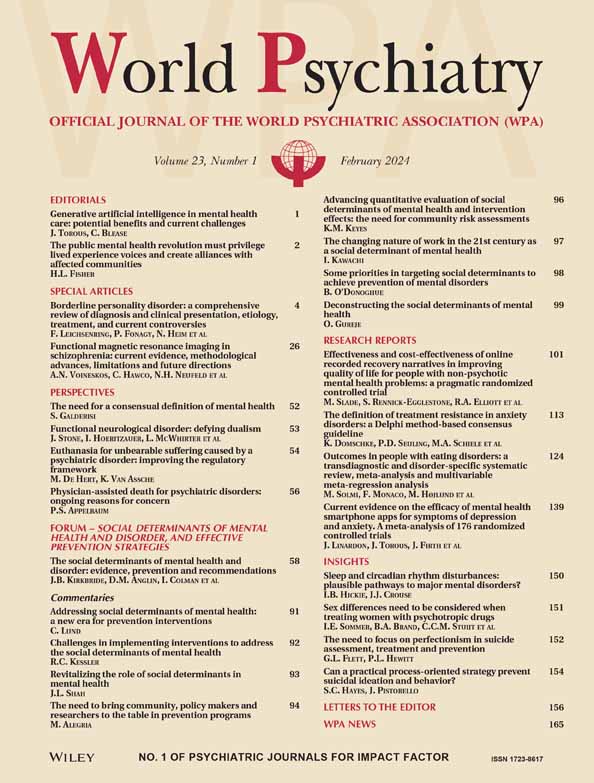Moderation, mediation, and moderated mediation.
IF 65.8
1区 医学
Q1 PSYCHIATRY
引用次数: 8
Abstract
World Psychiatry 18:3 October 2019 Similarly, processes of change supposedly need to be treatment program specific. This idea emerges from a protocol focus – defending that a method engages unique processes of change – but it takes on a different hue when treatment is processbased. If processes of change are central, why is it lethal if various technologies alter them? Treatment generality might in principle make change processes more important, not less. Processes of change ultimately must be theory based and testable, but techniques under various banners and brand names may alter overlapping and broadly applicable processes of change. From the practitioners’ point of view, so much the better. That fact empowers prac titioners to broaden the range of methods they use in order to target an important change process. Longitudinal evidence, basic research evidence, and component study evidence suggest that some processes of change are more important than others. For example, it would be strange if processes of change had no linkage to variation, selection, retention, and context sensitivity processes that are to be key to the evolution of complex systems in every other area of life. Indeed, it is worth noting that some of the patient-supplied outcomes described by Cuijpers – such as interpersonal effectiveness, social support, the capacity for problem solving, accepting and valuing oneself, awareness, or self-understand ing – have been examined in other con texts under the rubric of processes of change. This suggests that patients themselves intuitively care about processes of change even when traditional intervention science has not focused effectively on them. Departing from a nomothetic latent disease model and embracing the idiographic complexity of human suffering could free the field to pursue a more processbased approach. Focusing on therapeutic change processes should not be a side note but should take center-stage if we want clinical science to move forward.调解、调停和调停。
本文章由计算机程序翻译,如有差异,请以英文原文为准。
求助全文
约1分钟内获得全文
求助全文
来源期刊

World Psychiatry
医学-精神病学
自引率
7.40%
发文量
124
期刊介绍:
World Psychiatry is the official journal of the World Psychiatric Association. It is published in three issues per year.
The journal is sent free of charge to psychiatrists whose names and addresses are provided by WPA member societies and sections.
World Psychiatry is also freely accessible on Wiley Online Library and PubMed Central.
The main aim of World Psychiatry is to disseminate information on significant clinical, service, and research developments in the mental health field.
The journal aims to use a language that can be understood by the majority of mental health professionals worldwide.
 求助内容:
求助内容: 应助结果提醒方式:
应助结果提醒方式:


